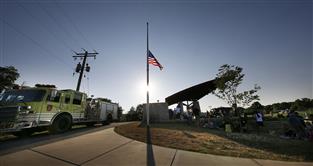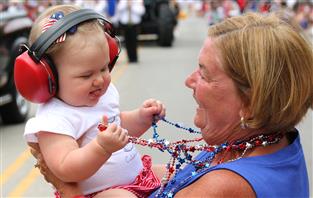City finds it's overpaying DPW workers, clerks
Wage changes would come only as new people hired
A study of public works laborers and clerical positions has shown that the city is often paying more than 20 percent above market value - in some cases as much as 50 percent more - for employees in these job categories compared to other public- and private-sector employers.
City administrators on Tuesday recommended implementing a two-tier pay system so they could begin adjusting pay rates as they fill vacant positions. Wage reductions would only come with new hires, so existing employees wouldn't experience pay cuts, Human Resources Director Beth Aldana said.
The Employee Relations Committee unanimously supported the effort to bring city employees' pay in line with market rates. Next week the matter will go to the full Common Council for consideration.
"There's a sense of urgency on these adjustments," said Alderman Peter Donegan, committee chairman. "We have huge financial responsibilities to take care of."
Taxpayers are looking for the city to cut its compensation costs, but that he doesn't want to "exploit" the opportunity to reduce pay, especially in a weak job market, Donegan said. He respects the city's employees too much to make overly dramatic adjustments. These employees are already paying more toward health insurance and their pension plans.
The state budget repair bill has removed the ability for the city's dispatchers, clerical and public works unions to bargain about anything but across-the-board wage increases. That gives the city power to look at each individual position and make comparisons to a larger group of employers, not just a few neighboring communities, before setting wages, Aldana said.
The clerical and laborers job categories cover up to 100 city employees, and even small pay reductions could result in several million dollars of savings over new hires' careers, City Administrator James Archambo said. With a higher-than-average rate of retirements expected in coming years, the impact of pay adjustments could be seen quickly.
The city payroll costs about $26 million annually. In addition, lower pay means the city would contribute less toward pensions.
Alderwoman Cheryl Berdan said she sees bigger savings coming from the flexibility of looking at the job duties associated with each individual position.
Administrators plan to look into reconfiguring some positions so employees could be cross-trained - and the number of positions potentially reduced. In addition, some type of merit or performance pay system to reward hard work and innovation is under consideration.
Alderwoman Jill Organ wondered whether a two-tiered system could hurt an existing employee's chances for promotion. If a current employee with the same qualifications as someone new to the organization who could be paid less were up for the same position, wouldn't it come to a matter of cost, she wondered.
If the two-tier system is approved by the council, administrators will return to the committee to report on pay adjustments and their impact on the quality of candidates applying for city jobs, Archambo said.
Next step
WHAT: Wauwatosa Common Council will decide whether to implement a two-tiered pay system for new hires.
WHEN: 7:30 p.m. Tuesday
WHERE: City Hall, 7725 W. North Ave.
More from News and Features
- Anodyne Coffee plans to open location in Wauwatosa Village
- Wauwatosa Meetings: Aug. 4
- Video: Wauwatosa girl's curbside ice cream stand raises money for the hungry
- Wauwatosa News and Notes: Hands-only CPR training offered; Firefly Art Fair is Aug. 6-7
- Wauwatosa Ask Now: Why are there barriers and fencing along the North Avenue bridges over the Menomonee River?
- Mystery Photo Contest: July 28
- Wauwatosa gears up for National Night Out event, this year at the zoo
- Election 2016: Wisconsin's 4th District candidates weigh in
- Wauwatosa's Luther Manor residents share smiles through flower delivery
- Wauwatosa Police Report: July 17-23














